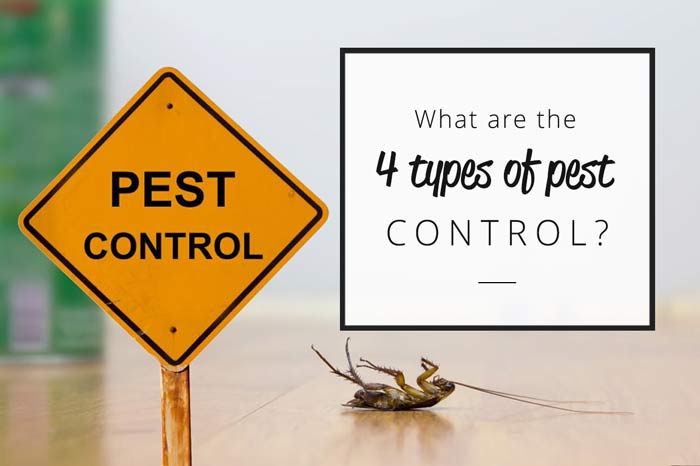More About Pest Control
More About Pest Control
Blog Article
The smart Trick of Pest Control That Nobody is Discussing
Table of ContentsPest Control Things To Know Before You Get ThisTop Guidelines Of Pest ControlThe smart Trick of Pest Control That Nobody is Talking AboutThe Best Strategy To Use For Pest ControlIndicators on Pest Control You Need To Know
Limitations of Chemical Management Be able to evaluate bug problems, identify if management is required, and make ideal referrals utilizing IPM strategies. Be acquainted with different techniques of pest administration - their advantages and restrictions. Recognize the worth of useful insects. It is not possibleor even desirableto rid yards of all bugs.This chapter goes over (IPM), a technique that makes use of expertise concerning parasites and their, practices, nonchemical approaches, and pesticides to manage bug problems. Extra info regarding IPM for specific plants is consisted of in phases that focus on those plants. Nonchemical pest control steps are stressed in phase 17, "Organic Horticulture." Handling birds and mammals is covered in phase 20, "Wild animals." Handling in the lawn and yard is covered in phase 6, "Weeds." Parasites in a yard or landscape may consist of pests and termites, weeds,, mammals, and birds.
Several individuals hurry to pull, hoe, or spray every weed they see. Insects and weeds, nonetheless, contribute in the. After growing a yard or establishing a lawn, the natural process of plant succession starts to improve and nonnative plants. A weed expanding in a grass stands for the first phase in a series of occasions that, if enabled to proceed, can eventually lead to a forest.
What we call "bugs" belong to a natural system at the office. An environment has no bugs. Just human beings take into consideration particular varieties parasites when they take place where they are not wanted. We will be much more successful in managing undesirable varieties when we realize that these microorganisms adhere to foreseeable patterns that we can utilize to our advantage.
Pest Control Can Be Fun For Everyone
Parasites vulnerable to a pesticide were promptly killed, leaving immune ones to breed and increase. It became clear that chemicals alone would not address all bug issues. Instead, overuse of chemicals caused the advancement of resistant bugs. Scientists started to develop a brand-new method to pest control. This brand-new strategy was referred to as integrated bug management (IPM).
An IPM strategy allows some level of parasites in the environment. Insects are much less most likely to endure a program that uses several methods of reducing their populations. Integrated bug management was very first recommended by entomologists due to the fact that bugs were the initial group of insects to verify difficult to take care of with chemicals alone.
A imp source threshold is the point at which action ought to be taken. IPM has actually expanded past pests to monitoring of all pest populaces: weeds, condition microorganisms, and mammals.
The 4-Minute Rule for Pest Control
Administration instead than eradication of pests is the goal. An IPM strategy begins with a cautious assessment of each parasite problem.
Clover expanding in a lawn might be seen as an undesirable weed, but as a Bonuses legume it is manufacturing nitrogen for the dirt and the flowers are giving nectar to honey bees and various other. Resistance for some weeds may become part of an IPM strategy. may be eating the fallen leaves of a plant, however when they are recognized as the larvae of Eastern tiger swallowtail butterflies, their damage might be endured so we can take pleasure in the lovely butterfly.

The second most crucial tool in pest management is very early Continue intervention. Responding to problems swiftly, prior to they have time to multiply, needs a less remarkable treatment.
Some Known Facts About Pest Control.
Lots of secure, functional, nonchemical techniques of plant protection and pest management may lower or remove the need to spray. Various other methods are most valuable when made use of with chemicals. To implement management methods correctly and to minimize losses, gardeners should understand the types of bugs that strike plants and understand pest biology.

Conducting a dirt test and applying just the recommended amount of fertilizer and lime optimizes the benefit to the plant while lessening problems associated with excessive use fertilizer - Pest Control. Covering the dirt with numerous inches of mulch safeguards the plant in numerous methods: lowering dirt water loss to evaporation, reducing weed competitors, offering nutrients, and creating a suitable setting for earthworms and microorganisms that keep the soil loosened for origins and break down organic material to release nutrients
If mulch touches the trunk, it can create a way for voles, bacteria, and fungi to attack the plant. Do not use manure or garden compost that has actually not extensively decomposed as a top dressing because it can motivate unfavorable bugs. Research study recommends that farming is damaging to soil framework.
3 Easy Facts About Pest Control Shown
If tilling is considered necessary, take into consideration doing it in the fall when the life cycles of numerous insects brings them near the surface area. At the surface, parasites end up being subjected to the weather condition as well as birds and various other natural adversaries.
Report this page